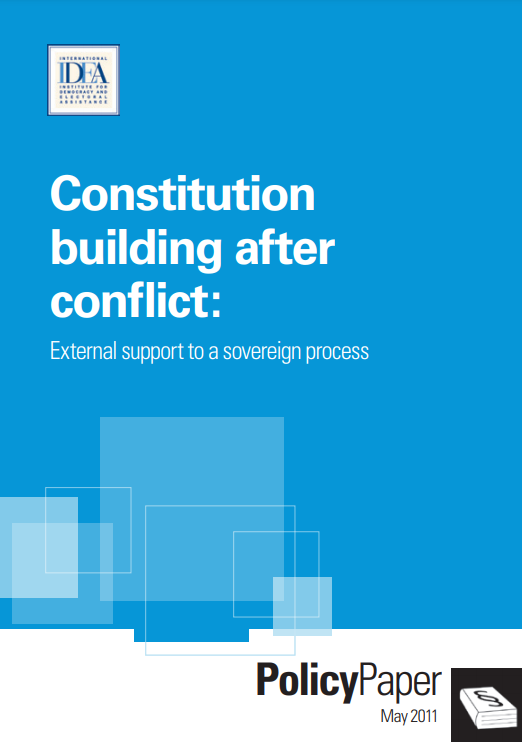Policy Paper: Constitution building after conflict: External support to a sovereign process, International IDEA - 2011

Constitution building refers to processes for negotiating, drafting and implementing constitutions. Many constitutions are framed following conflict. Increased intervention of the international community in the resolution of civil and intra-state conflicts has led in many cases to external actors extending their roles into constitution building. External intervention in constitution building presents challenges and pressures on these exercises of sovereignty.
This paper contributes to an ongoing dialogue among practitioners and aims to present a policy perspective that calls for restrained and value-adding external support in constitution building.
To access this Policy Paper, please click the following link:
Download the Policy Paper in PDF
Also available in Arabic.
To order a print copy, visit the International IDEA website.
Read an interview with Dr Andrew Ladley, lead contributor to the paper ‘Constitution building after conflict: External support to a sovereign process.
Table of Contents
- Key Recommendations
- Executive Summary
- Constitution Building
- Most recent constitution building has been related to violent conflict and its resolution
- International involvement in constitution building increased after its evolution out of conflict resolution
- Constitution building will continue to be important in tandem with the need for and level of conflict transformation
- ‘New problems’ will need ‘new constitution building’
- Recognizing that constitution building is a diverse, multivalent process
- How to ensure that the results of constitution building processes endure
- Who are the insiders and who are the outsiders?
- Should there be any involvement by external actors?
- What should trigger and limit external involvement in constitution building processes?
- The distinction between process and content
- What checks on outsider involvement?
- Who benefits from the involvement of external actors?
- Conclusions
- References and Further Reading
- Abbreviations
- Acknowledgements